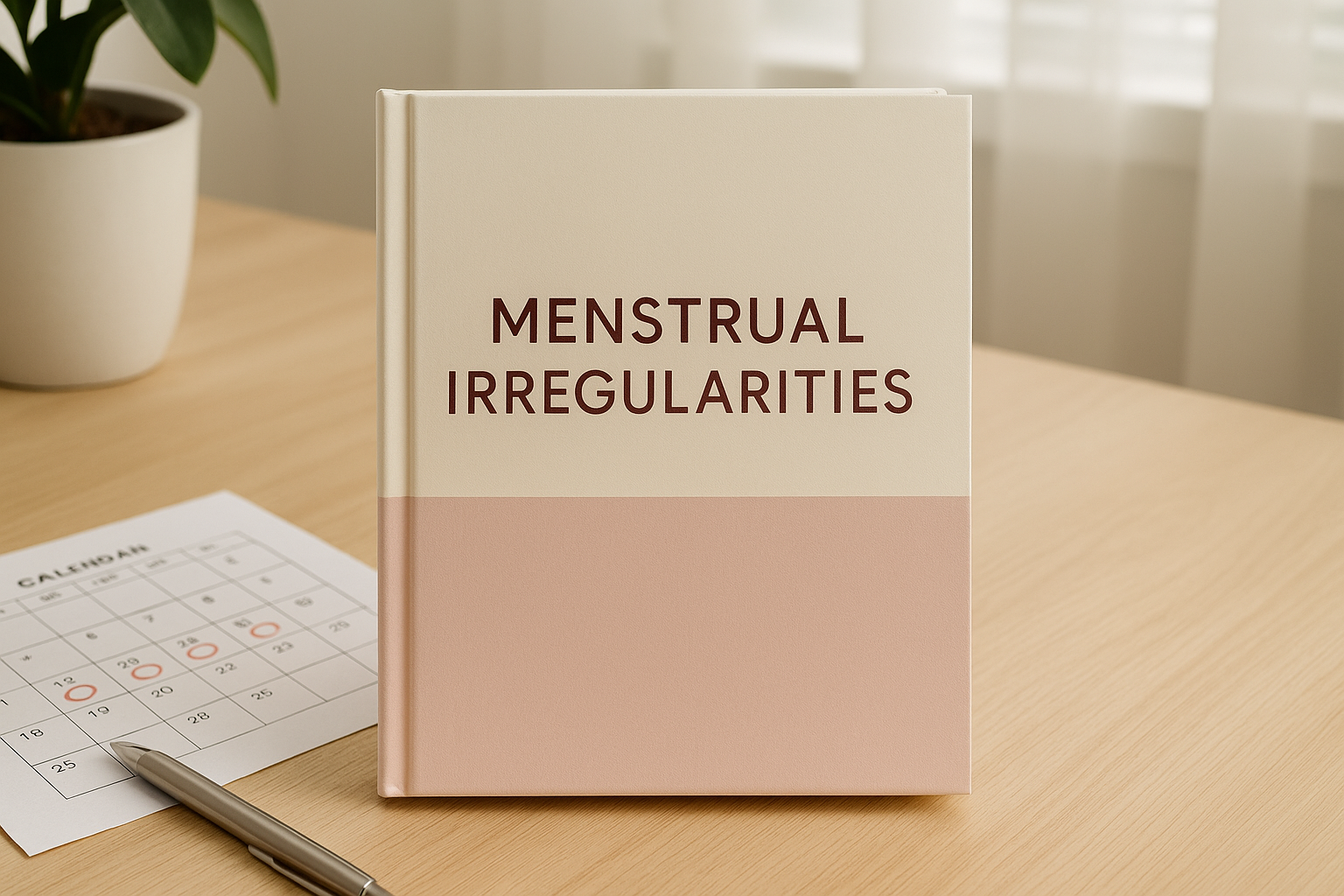Menstrual Irregularities: A Functional Medicine Approach to Balanced Cycles

Menstrual Irregularities: A Functional Medicine Approach to Balanced Cycles
Irregular periods are one of the most common complaints I hear from women in my practice—yet they’re also among the most frequently dismissed. Whether it’s long cycles, short cycles, missed periods, heavy bleeding, spotting between periods, or severe PMS, many women are told it’s “normal” or handed birth control as a quick fix.
But here’s the truth:
Your cycle is a vital sign. When it’s off, something deeper is going on.
In functional medicine, we don’t just suppress symptoms—we ask why the body is out of rhythm. Menstrual irregularities are often a signal that your hormones, gut, brain, and lifestyle are out of sync. The good news? With the right testing and root-cause approach, you can restore hormonal balance and feel like yourself again.
What Are Menstrual Irregularities?
A healthy menstrual cycle typically lasts 26 to 35 days, with 3–7 days of bleeding. Anything outside that window—too short, too long, or absent altogether—can indicate an imbalance.
Types of menstrual irregularities:
- Oligomenorrhea: Infrequent periods
- Amenorrhea: Absence of periods
- Menorrhagia: Heavy or prolonged bleeding
- Polymenorrhea: Short cycles (<21 days)
- Anovulatory cycles: Periods without ovulation
- Spotting between periods
Many of these issues point to hormone imbalance, especially involving estrogen, progesterone, insulin, and cortisol.
➡️ Related blog: What Is Functional Medicine?
The Functional Medicine View: Why the Cycle Gets Off Track
Conventional care often treats menstrual symptoms in isolation—usually with hormonal birth control or antidepressants. But in functional medicine, we see your menstrual cycle as a reflection of your overall health.
Here are the top root causes we investigate:
1. Estrogen Dominance and Progesterone Deficiency
Too much estrogen relative to progesterone can cause:
- Irregular or heavy periods
- Breast tenderness
- Mood swings
- PMS and anxiety
- Spotting or mid-cycle bleeding
This is common in women with:
- Poor liver detox (sluggish estrogen clearance)
- Gut dysbiosis (imbalanced estrobolome)
- Chronic stress (which lowers progesterone)
We often support estrogen detox using DIM, calcium-D-glucarate, and cruciferous veggies, and enhance progesterone with vitamin B6, magnesium, and stress management tools.
➡️ Related blog: The Gut-Immune-Hormone Connection
2. Polycystic Ovary Syndrome (PCOS)
PCOS is a common cause of menstrual irregularities, affecting 1 in 10 women. It’s typically driven by insulin resistance and androgen excess, leading to:
- Irregular or absent periods
- Ovarian cysts
- Acne or hair growth
- Difficulty losing weight
We use fasting insulin, DHEA-S, and testosterone levels to confirm. Treatment focuses on:
- Blood sugar regulation (low glycemic diet, inositol, berberine)
- Reducing inflammation
- Supporting ovulation and hormone balance naturally
3. Thyroid Dysfunction
An underactive thyroid (hypothyroidism or Hashimoto’s) can lead to:
- Irregular or absent periods
- Heavy or prolonged bleeding
- Fertility struggles
- Fatigue and brain fog
Most conventional panels only test TSH, but we check:
- Free T3, Free T4, Reverse T3, TPO antibodies
- Cortisol and nutrient cofactors like selenium, zinc, and iron
➡️ Related blog: A Functional Medicine Approach to Hashimoto’s Disease
4. HPA Axis Dysfunction (aka “Adrenal Fatigue”)
When your body is under chronic stress, your brain signals your ovaries to dial back hormone production—often resulting in:
- Missed or irregular cycles
- Short luteal phases
- Low progesterone
- PMS and anxiety
We assess cortisol rhythm with a DUTCH hormone panel and support adrenal function using:
- Adaptogenic herbs (ashwagandha, rhodiola)
- Breathwork and vagus nerve stimulation
- Proper sleep, hydration, and mineral balance
➡️ Related blog: Chronic Fatigue and the Functional Approach
5. Nutrient Deficiencies
Your body can’t make or metabolize hormones properly without key nutrients. Deficiencies in the following can cause cycle disruptions:
- Magnesium
- Vitamin B6 and B12
- Zinc
- Iron/ferritin
- Vitamin D
We use micronutrient testing to identify gaps and build a repletion plan with diet and supplementation.
What Testing Looks Like
Functional medicine goes beyond a basic hormone panel. We may order:
- DUTCH Complete: Advanced hormone and cortisol mapping
- GI-MAP or stool testing: To assess gut health and estrogen metabolism
- Micronutrient panel
- Thyroid and autoimmune labs
- Fasting insulin, glucose, and HOMA-IR for PCOS or blood sugar issues
These give us a full-body snapshot of why your hormones are off—and what to do about it.
Final Thoughts: Your Period Is a Clue, Not a Curse
Menstrual irregularities are not just an inconvenience. They’re your body’s way of telling you something is off. Instead of masking the symptoms, functional medicine empowers you to understand the cause and take steps to correct it.
With the right support, your cycle can become regular, balanced, and pain-free—and a sign of vibrant health, not a monthly struggle.
Ready to Get to the Root of Your Irregular Cycles?
We offer virtual consultations and in-depth lab testing to help women understand their hormones and reclaim their health.
📞 Call 314-842-1441 or schedule a virtual consult today
🔗 Internal Links:
- What Is Functional Medicine?
- The Gut-Immune-Hormone Connection
- Chronic Fatigue and the Functional Approach
- A Functional Medicine Approach to Hashimoto’s Disease